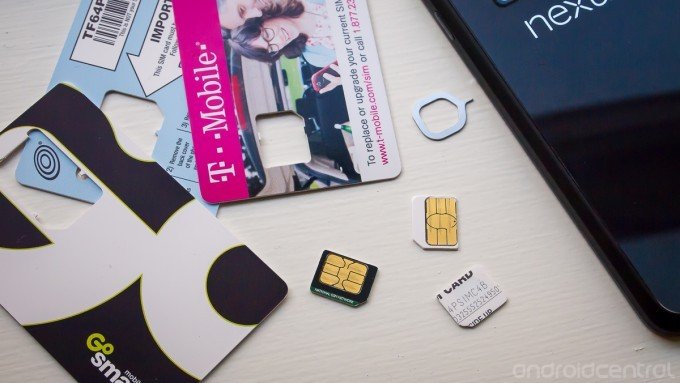CTIA, FCC come to agreement on cellphone unlocking terms

Customers to be notified proactively of unlocked status, get devices unlocked for free
The CTIA has announced today it has come to an agreement with the FCC regarding cellphone unlocking. The five largest carriers — Verizon, AT&T, Sprint, T-Mobile and U.S. Cellular — have signed-on with a deal that increases the transparency and improves the process of unlocking phones in the country.
The full list of six steps towards more consumer-friendly unlocking, which is quite extensive and can be found after the break, will be adopted by each of the five largest carriers and begin to be implemented within three months. The basic idea behind the guidelines follows right in line with what the FCC proposed the CTIA consider just one month ago, including clear policies posted on the carrier's unlocking process, responding to unlock requests within two days and unlocking devices without a fee.
The big sticking point between the wireless group and governing body was the proactive notification of customers that their devices are ready to be unlocked at the end of their contracts, which seems to now be included in the guidelines.
- Disclosure. Each carrier will post on its website its clear, concise, and readily accessible policy on postpaid and prepaid mobile wireless device unlocking.
- Postpaid Unlocking Policy. Carriers, upon request, will unlock mobile wireless devices or provide the necessary information to unlock their devices for their customers and former customers in good standing and individual owners of eligible devices after the fulfillment of the applicable postpaid service contract, device financing plan or payment of an applicable early termination fee.
- Prepaid Unlocking Policy. Carriers, upon request, will unlock prepaid mobile wireless devices no later than one year after initial activation, consistent with reasonable time, payment or usage requirements.
- Notice. Carriers that lock devices will clearly notify customers that their devices are eligible for unlocking at the time when their devices are eligible for unlocking or automatically unlock devices remotely when devices are eligible for unlocking, without additional fee. Carriers reserve the right to charge non-customers/non-former-customers a reasonable fee for unlocking requests. Notice to prepaid customers may occur at point of sale, at the time of eligibility, or through a clear and concise statement of the policy on the carrier’s website
- Response Time. Within two business days after receiving a request, carriers will unlock eligible mobile wireless devices or initiate a request to the OEM to unlock the eligible device, or provide an explanation of why the device does not qualify for unlocking, or why the carrier reasonably needs additional time to process the request.
- Deployed Personnel Unlocking Policy. Carriers will unlock mobile wireless devices for deployed military personnel who are customers in good standing upon provision of deployment papers.
Reading through the list of guidelines ourselves it seems like a pretty solid set of rules, and ones that are roughly followed by most of the carriers already. The full list of six guidelines will be completely implemented in the next 12 months, but interestingly the carriers must implement at least three of the six guidelines within the next three months. Carriers seem to have the choice of which three to go ahead with early, but it's interesting to see a staged rollout.
The CTIA, for better or worse, reminds customers that a guarantee of unlocking does not guarantee interoperability between networks. Just because AT&T will let you unlock your Galaxy S4 doesn't mean you'll now be able to walk into a Sprint store and activate it. The opacity of different frequencies and technologies in use amongst the five big carriers in the U.S. is confusing, to say the least, and continues to be an issue even after this agreement.
Source: CTIA; (2)
Be an expert in 5 minutes
Get the latest news from Android Central, your trusted companion in the world of Android
Andrew was an Executive Editor, U.S. at Android Central between 2012 and 2020.

